It wasn’t until we pulled away from Bosnia’s border with Croatia that the casual pace at which she redistributed the passports began to wear at me. That, and the fact that her bleached hair and yellowed-white jeans were exactly the same color.
Why is she the one handling this anyway? I thought as our headlights gleamed off the badge of the border guard, who was lighting up a cigarette outside.
Well, I knew why she was the one handling it: She was clearly fucking the bus driver and he, wanting to arrive to our destination on time, decided to let his concubine do the job of government officials. Of course, if he’d focused on driving instead of talking dirty with his mistress, we probably wouldn’t have been as late as we were.
Not that it was any of my business—I was just a scared traveler without his travel documents. That she had no business handling them simply made it easier to heap judgment upon her.
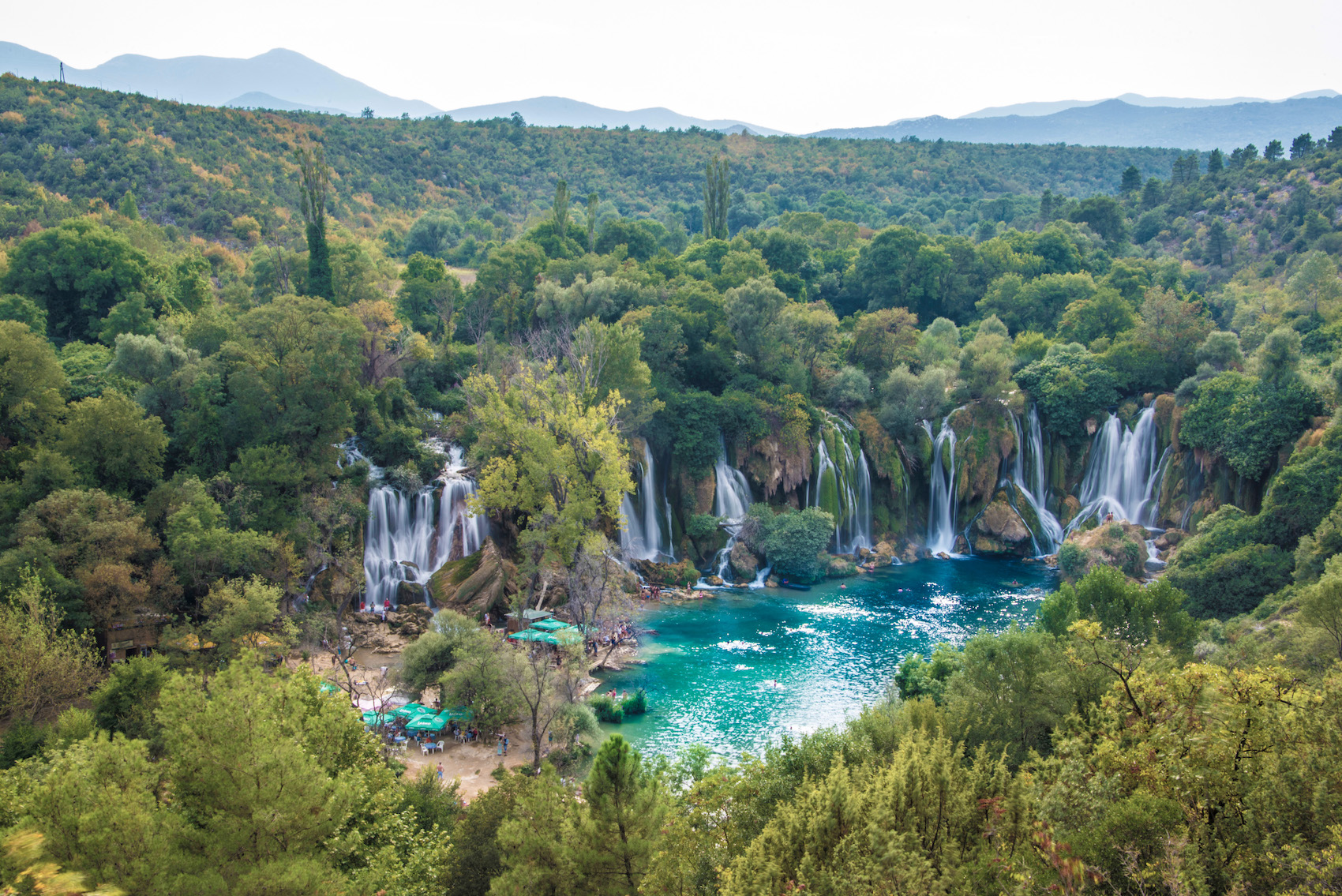
I was deciding when the best time to ask the driver to go back to the border for my lost passport would be when the woman stood in front of me, smiled as sweet as the baklava my seat mate removed from the paper bag he was carrying, handed me my passport, shyly sat down and resumed flirting with her benefactor.
Hillary landed in Bosnia under sniper fire—I rode in thinking I’d gotten scammed by a hooker.
“I live in Texas,” I dropped my bag and sat down next to her. “But I grew up in St. Louis.”
She said something in Bosnian to her husband, then turned back to me. “We know lots of people in St. Louis.”
I wasn’t surprised. The vast majority of Bosnian refugees to the U.S. ended up in St. Louis, to the ire of many St. Louisans, although I didn’t dare mention that part to her.
I also abstained from telling her that one of my first boyfriends had been Bosnian, and how the same small-mindedness that made so many of her countrymen feel unwelcome in St. Louis had also made coming of age as a young, gay man there a war of sorts.
“I had a Bosnian friend growing up,” I took a sip of the Turkish coffee her husband had just brought out to me, reminiscing both on how exotic Eldin had seemed to me when we were both 17, and how much of a refuge we’d been for one another, growing up in equally conservative families. “A very good Bosnian friend.”
She called to her husband, who’d left to chase after their young daughter, then pivoted to another topic. “And how do you like Mostar?”
“It’s astonishing,” I began flipping through my camera to show her some of the photos I’d taken of the bridge and the selfies I’d snapped in front it, explaining my tripod-remote method, much to her fascination.
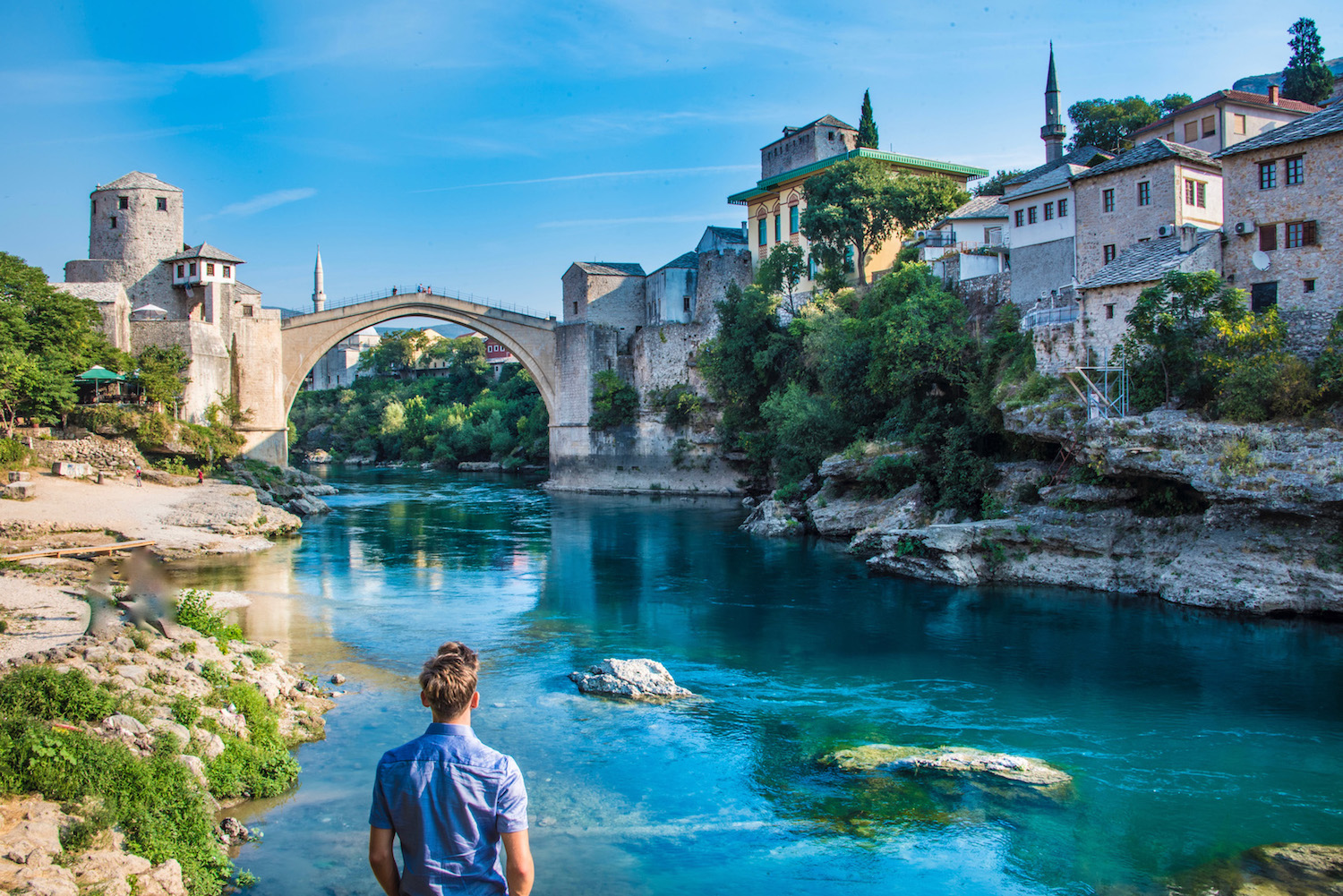
I continued by extolling the people of Mostar for rebuilding their town into what is probably single most enjoyable tourist destination in Europe, but left out the disappointment—and disgust—I felt upon hearing many of my fellow travelers shit-talk the apparent falseness they saw around them.
But I omitted that from my account of the day, too.
“Perfect,” I beamed to my de-facto Mostar host family upon returning from the short road trip they’d made possible by finding me a cheap car to rent. “An absolutely perfect day.”
Perfect, I reminded myself, except for the fact that you spent three-quarters of the drive dwelling on the road trips you took with your recently estranged boyfriend, and looking back regretfully—and bitterly—on the words and actions that led to him not being here with you.
“You should stay,” she suggested innocuously, calling to mind a refrain Danilo had often used more seriously, pleading with me to stay in Costa Rica prior to his U.S. visa getting approved and him coming to live with me.
She laughed and poured me some local chardonnay. “At least for a glass of wine—I know you have to go Sarajevo tomorrow.”
If only you knew the rest, I cheerfully clinked my glass with hers, feeling embarrassed that I didn’t know how to say “cheers” in Bosnian.
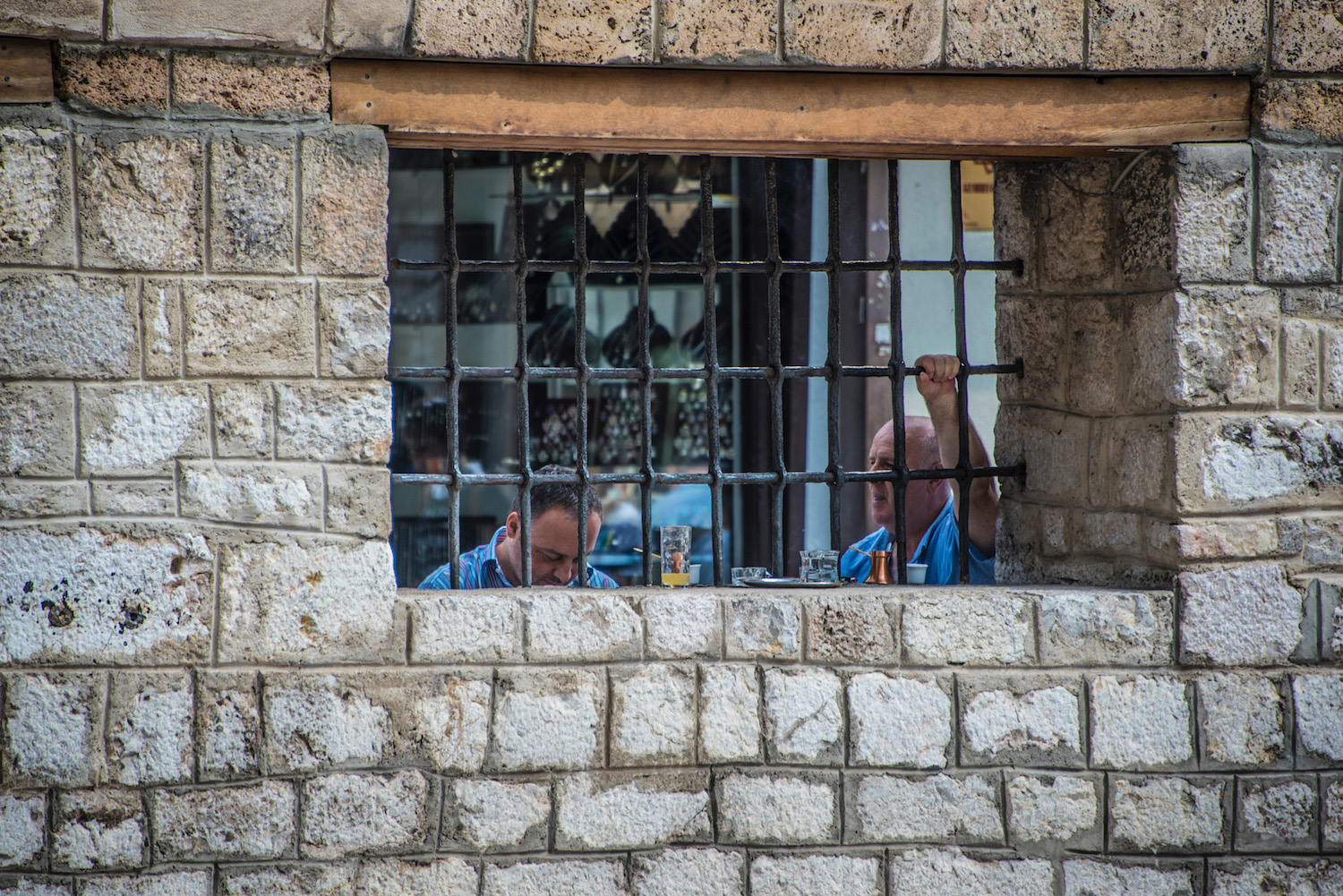
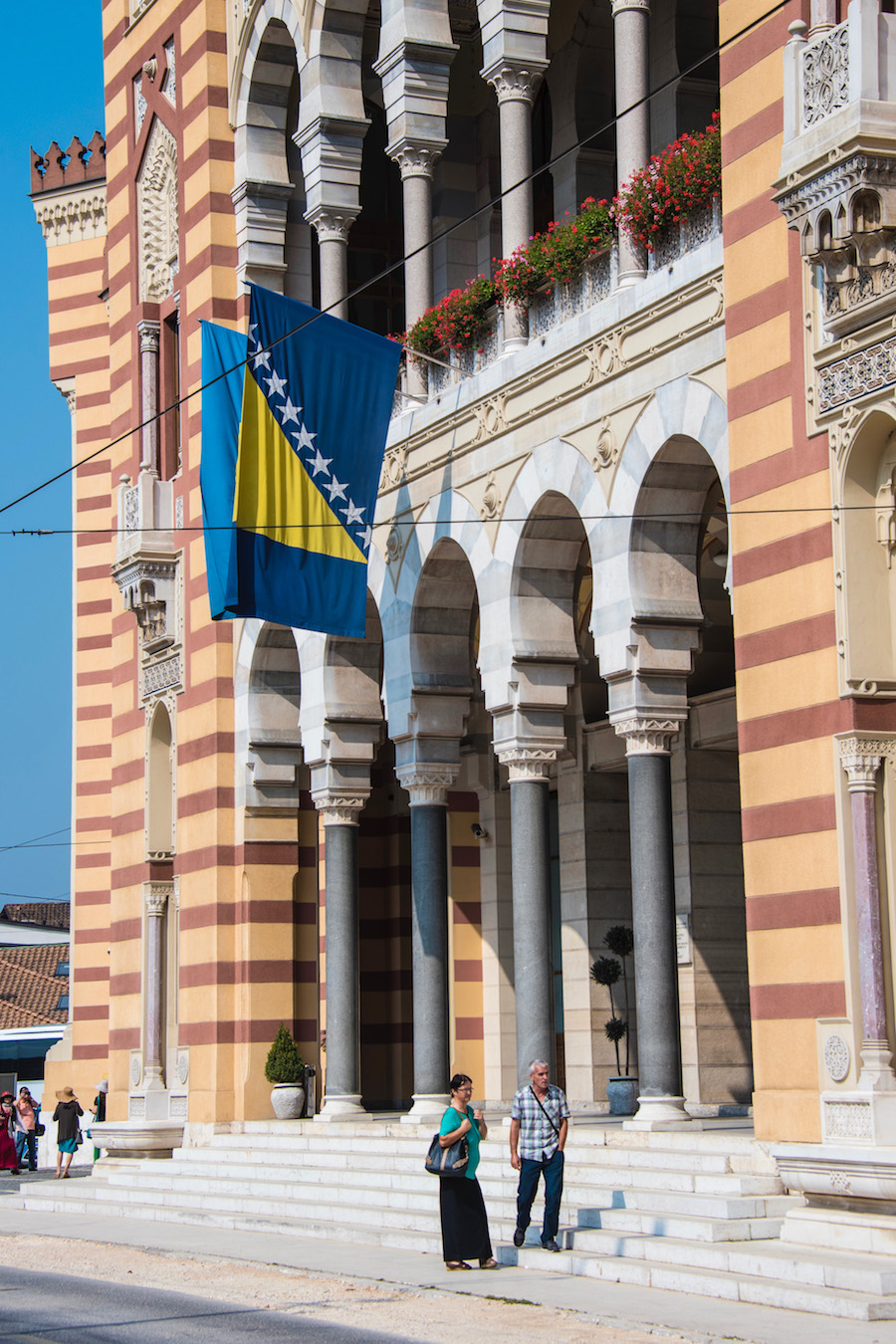
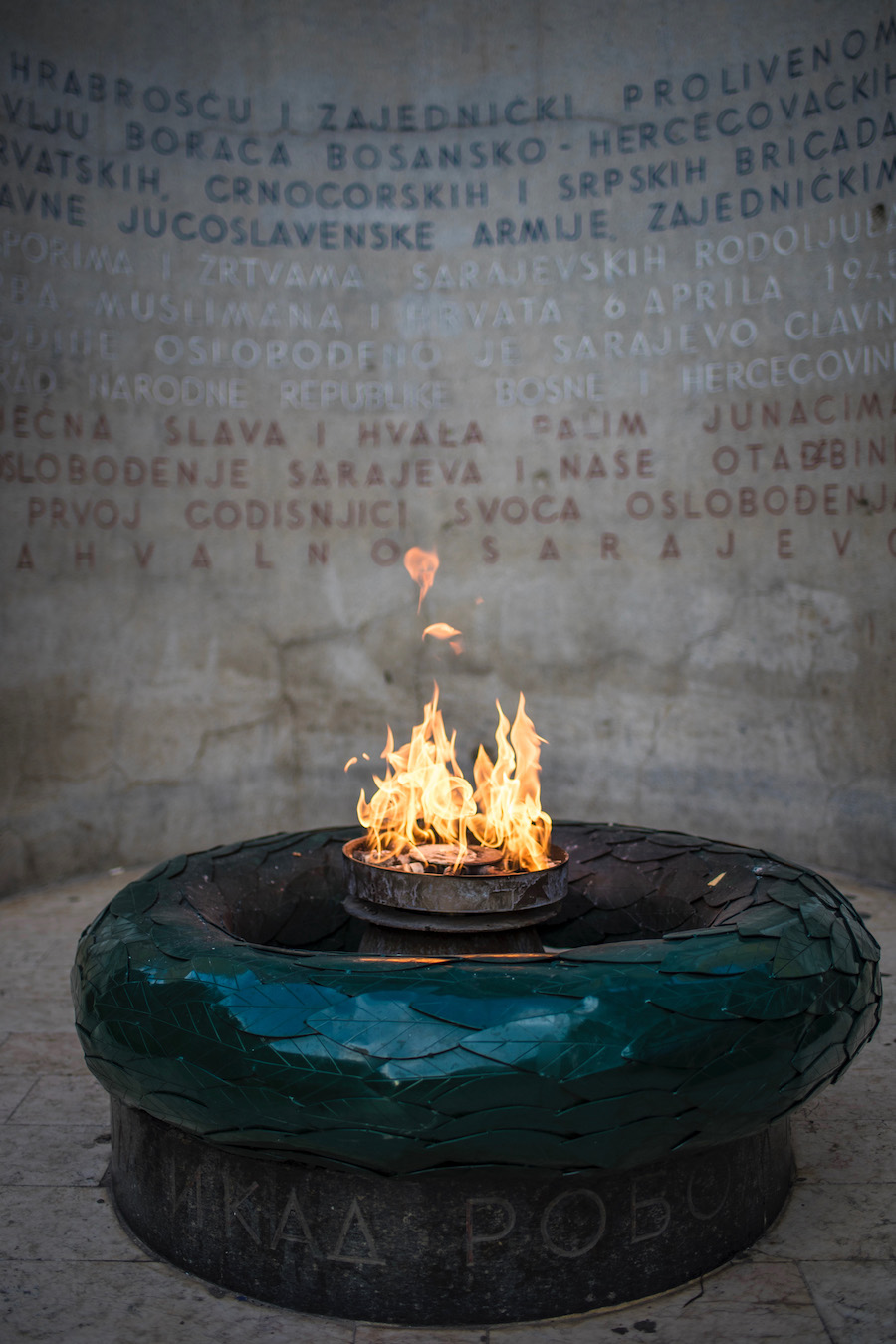
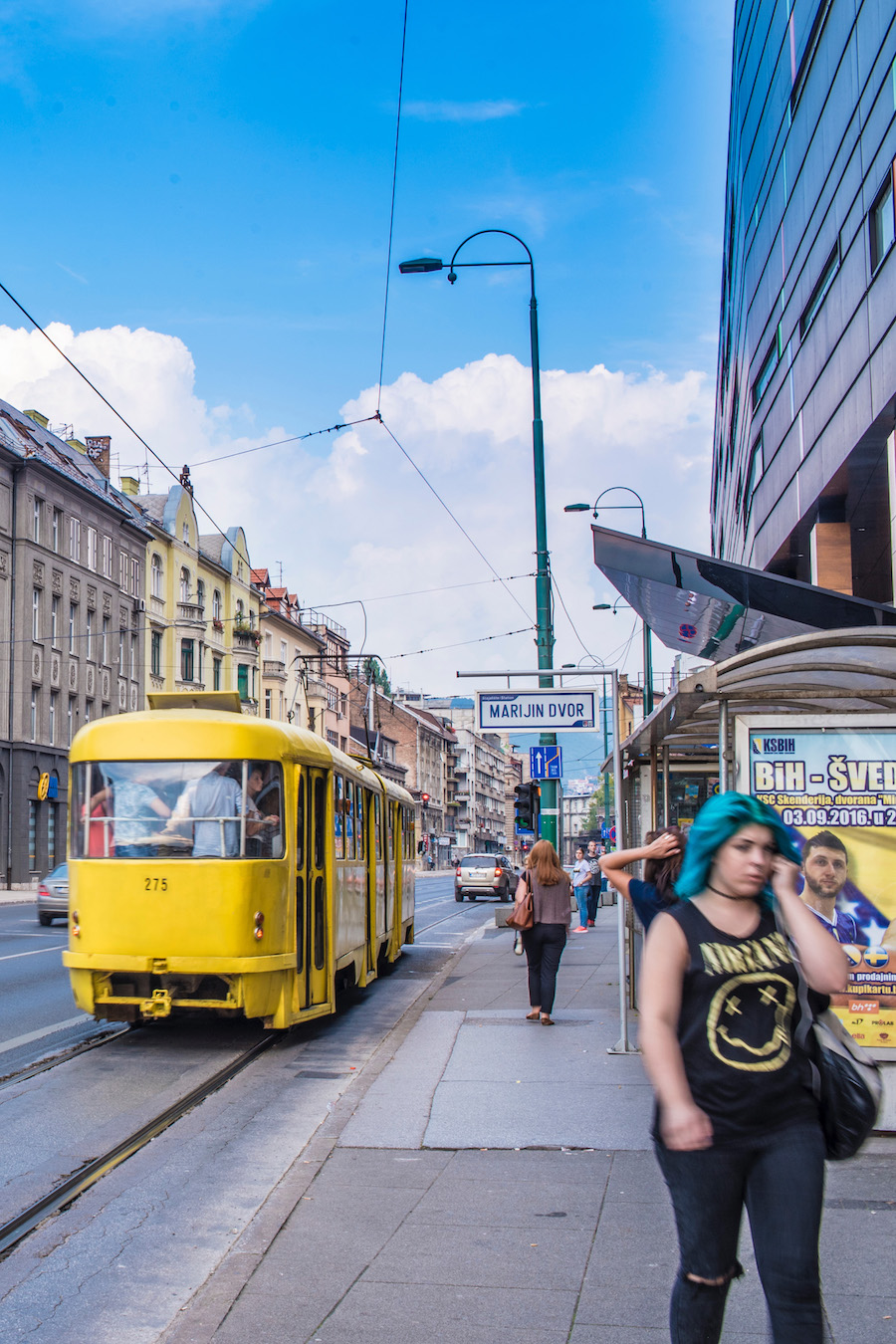
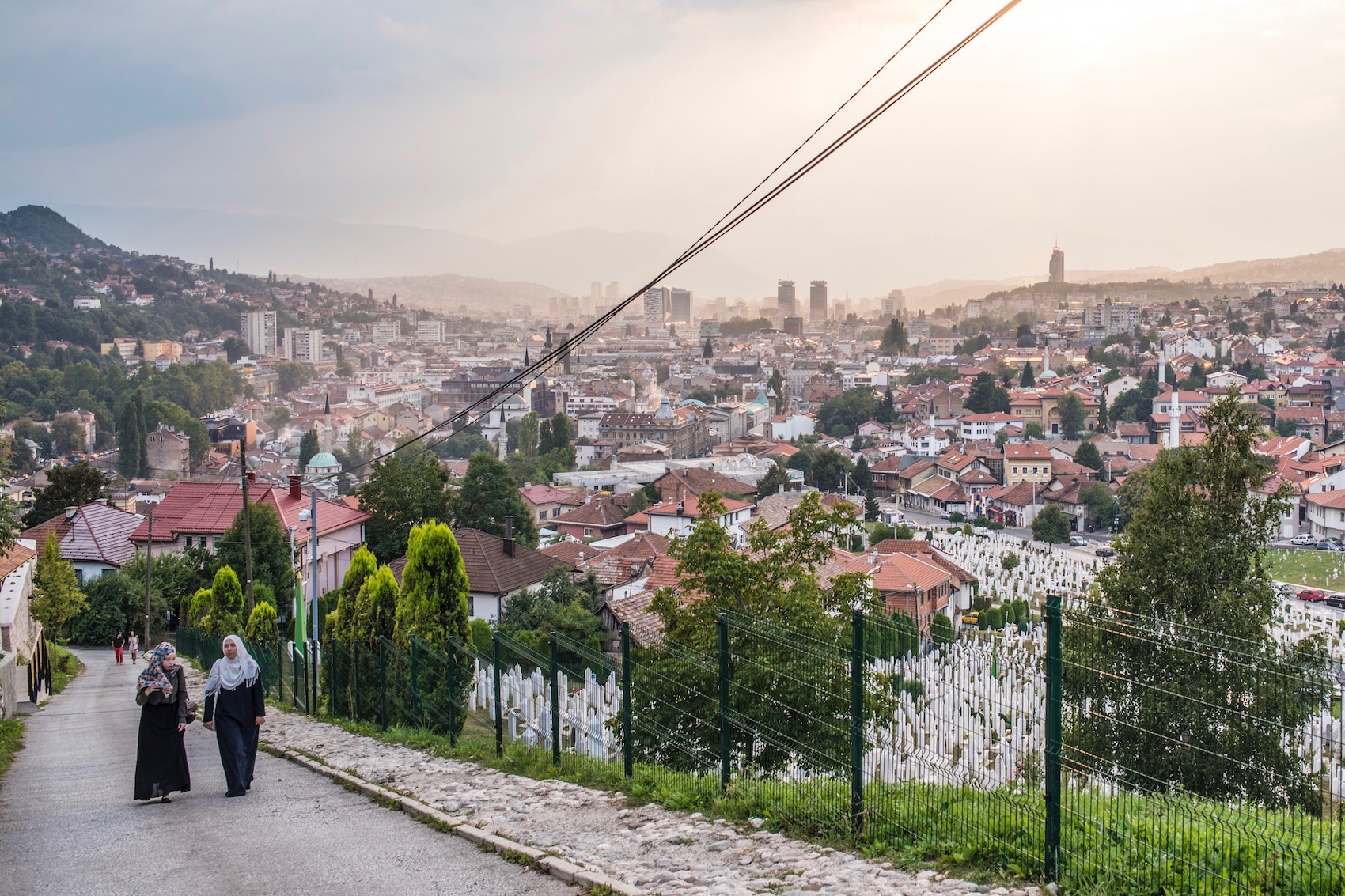
About 15 minutes into my journey to the Bosnian capital, a very large older man walked back to the row where I was sitting and placed his hand on the seat in front of me. His arm was angled such that his elbow was about an inch from my face—and he smelled like sour milk. My anger seethed within me, but I managed to keep my mouth shut until we reached his stop.
My personal space would stay free for another half hour or so, until a different thick-fisted man put his elbow in my face. This one was about half as large—not to mention, only half as old—as the first one, and exuded a much sexier musk, to say nothing of how erotically he gripped the seat. I still didn’t like the elbow, of course, but I can’t say I wouldn’t have liked to snap into that Slim Jim.
In both cases, I’d mindlessly heeded a piece of advice my mother used to give me. Think it, she’d instruct me after each time my big mouth got me into trouble. Don’t say it.
After settling in at my hotel, I headed to a restaurant one of my Instagram followers had recommended for a late lunch. There, I met an Irish tourist named Mandy, who was celebrating her birthday with a trip through the Balkans. She was very friendly (and, I think a little drunk), which made for an interesting conversation that, of course, ended up at my country’s presidential race.
“It’s good that he probably won’t win,” she replied when I explained to her how historically unprecedented it would be for Donald Trump to overcome his polling deficit. “And I don’t agree with anything he says. But I have to admit, I respect him for telling it like it is, or at least how he sees it.”
I quickly changed the subject to avoid spending my lunch in Bosnia talking about an election across an ocean and nearly two months away. But Mandy’s perspective lingered with me throughout the day, as I traipsed through Sarajevo’s Old Town, up to the Yellow Fortress above it and down to the Eternal Flame just outside it.
It lingered hours later, even, when I ended my day at a tucked-away gallery devoted to the Srebrenica Massacre that ultimately led to my country accepting the refugees that ended up in my home city.
I felt somewhat numb during the hour or so I spent inside the small exhibition hall, owing both to the fact that I had immersed myself in Balkan War history just before my trip, as well as the sheer quantity of disaster porn I absorb osmotically on a daily basis.
Indeed, it was a quote I saw on the wall just before exiting the museum that mostly viscerally affected me. All that is necessary for the triumph of evil is that good men do nothing.
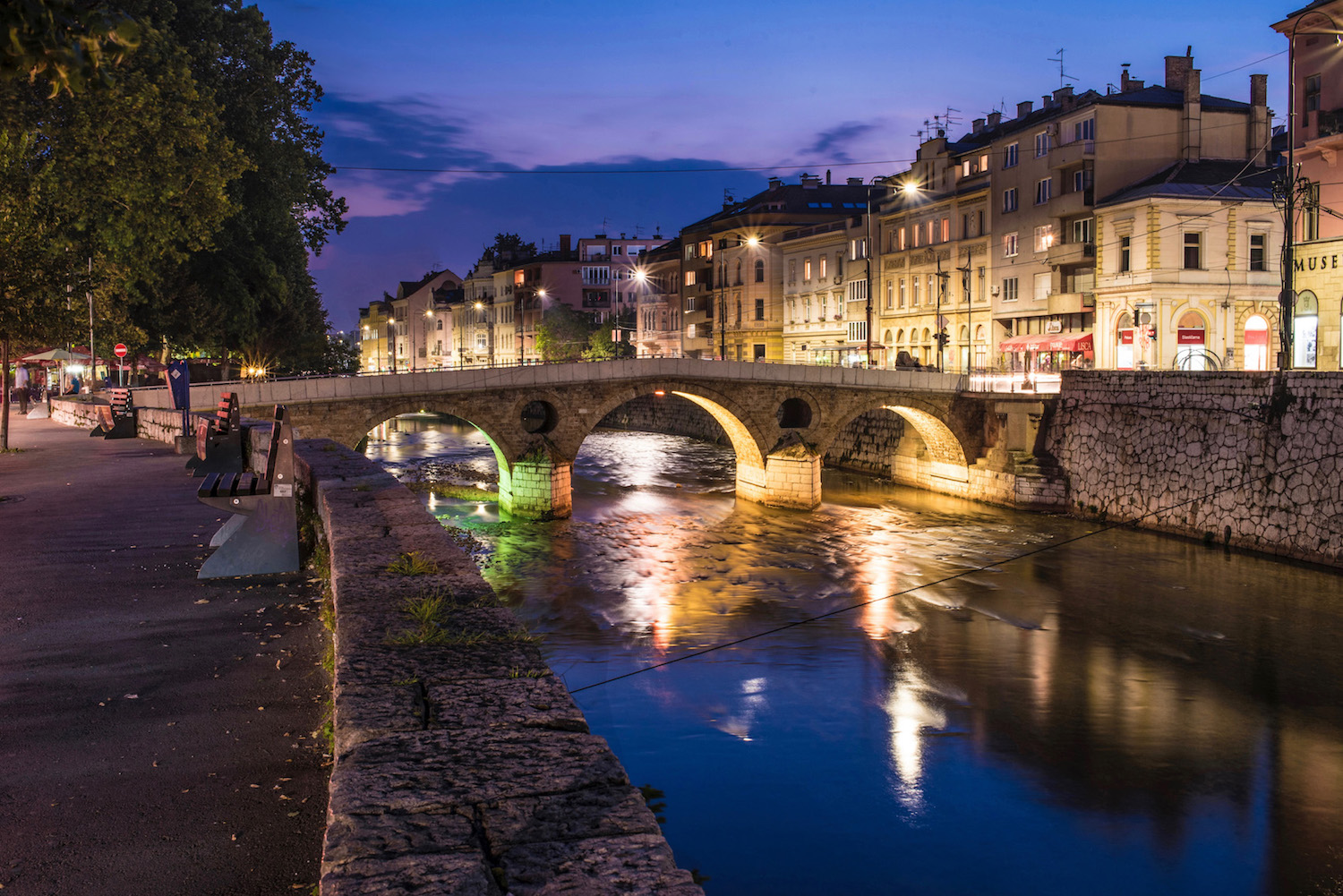
My last night in Sarajevo, I sat alone on the banks of the Miljacka, a few feet from where Franz Ferdinand was shot. This is where war, as we know it, was born, I realized, as the sky slowly faded from orange to to purple to blue above the eclectic row of buildings—Soviet, Austro-Hungarian, Islamic and then Soviet again—in front of me.
“Where in the U.S. are you from?” a man who was walking past asked me, although I have no idea how he knew I was American.
“St. Louis,” I said, anticipating that he also had family there.
Instead, he said nothing, as if he knew what a crap hand the people who’d been sent there got dealt. “Have a nice night.”
My subtle dig at Hillary Clinton in the intro to this post—and my sanity—notwithstanding, I will absolutely not be voting for Donald Trump in November. I won’t entertain the idea of him as being virtuous at all, not even to the minimal extent that Mandy did.
But one thing I really need to reconcile (more in real life, where as you know I’m totally candid) is the dichotomy between my often judgmental, sometimes disrespectful, occasionally hateful thoughts, and the generally cordial person I outwardly present myself to be.
Perhaps a more open dialogue on racism might’ve prevented the rise of Trump or even Slobodan Milosevic; maybe, if the Austrian ruling class had been more realistic about the powder keg ready to blow in the Balkans, Gavrilo Princip might not have felt compelled to shoot Franz Ferdinand.
Maybe, I sighed. Maybe not.
I stood up and walked toward the Latin Bridge, surprised that the exact spot where the incident occurred wasn’t marked. I turned right and began heading back into the Old Town, then stopped and stood at the edge, listening to the soft trickle of the water as it ran under my feet. And the stream of truth that was running through me.
When all was said and done, after all, the family who had so often been judgmental when I was growing up accepted Danilo with open arms. They’d been on the wrong side in many battles, but were standing by me when the war was over.
It had been in vain, anyway—I’d known, from the day I met him, that our relationship was never going to work. But just like my mother had always advised me, I decided to think it, not say it, until one day, the powder keg we’d been living in blew apart: A single shot destroyed our world.
You can’t end the world’s wars, I stared at the sky as the last blue piece of it turned black. But you can vow to stop fighting your own.

Robert Schrader is a travel writer and photographer who’s been roaming the world independently since 2005, writing for publications such as “CNNGo” and “Shanghaiist” along the way. His blog, Leave Your Daily Hell, provides a mix of travel advice, destination guides and personal essays covering the more esoteric aspects of life as a traveler.








